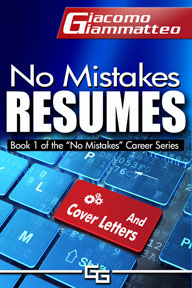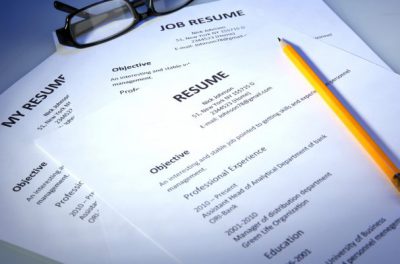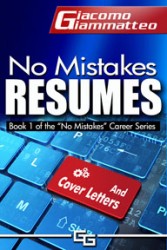Resume Advice
I’m often asked for advice regarding resumes, cover letters, interview techniques, references…just about anything related to careers, but most of the questions deal with resumes. The questions are usually simple ones:
• How do I cut it down to two pages?
• Is this a good resume?
• How can I improve it?
I received a resume a few weeks ago and the person asked me to look it over and give my opinion. I told him I’d get back to him in a few days.
On the surface the resume looked good. The formatting was nice, and the font was the right size. The layout wasn’t bad, but…I found 17 mistakes. Seventeen!
If I were in HR and reviewing this, and the person was going to have to write anything more than a simple email, I would have trashed it. Seventeen mistakes is far too many. I told the person that his resume was respectable, but he needed help. “You have more than a dozen mistakes,” I said.
He shrugged it off as if it were nothing. “I know it’s not perfect,” he said. He didn’t even ask what was wrong. I have to tell you, I was confused.
Why Was I Confused
It’s not because he ignored my advice. I’m too old for that. Besides, I’ve raised three kids, and as anyone who’s raised kids knows, your advice is always ignored. If I get asked for advice, and someone chooses to ignore it because they found better advice, or at least advice they think is better, I’m fine with that. What puzzles me is when people seek advice and then ignore it simply because it’s not what they wanted to hear.
Invariably, after I review a resume, there is criticism to hand out. Some people take it graciously and some get offended. I’m always confused by the people who take offense. They ask for the truth but, as Jack Nicholson said in A Few Good Men, “You can’t handle the truth!”
A Rule You Should Live By:
Don’t ask for advice if you aren’t prepared to hear negative feedback.
When I go to see my cardiologist, I don’t want to hear bad reports, but if my arteries are 90% clogged, I don’t want her telling me I’m fine, either. I need to hear the truth.
Resumes are the same way, if not quite as critical. The problem is, that based on my experience, most people not only expect to hear good things when they ask for an opinion, they quite often close their minds to anything else. Think logically about this. If you ask someone for advice, here are the likely scenarios as far as feedback.
• You ask for feedback on your resume and get told it’s good. Life is great. You’re satisfied.
• You ask for advice and get told the resume could use work. Not very satisfied.
• You ask for advice and get told it needs a lot of fixing. Pissed off.
Let’s Analyze That
Most people don’t ask for advice unless they think they’ve got it nailed. In other words, they’re looking for confirmation of what they already know—their resume is great. Of the three possible responses we discussed above, the only one that’s acceptable to them is the first one, and all it does is provide confirmation of their “great” resume. The other two responses get people upset. So why do they ask? Let’s go back to the rule.
Don’t ask for advice if you aren’t prepared to hear negative feedback.
I think that says it all.
My suggestion is to seek advice from several people you trust, and then decide which route to take.
If you liked this post, you might want to check out my resume/cover letter book, No Mistakes Resumes. The second book in the series, No Mistakes Interviews, will be out in two weeks.






















Connect
Connect with us on the following social media platforms.